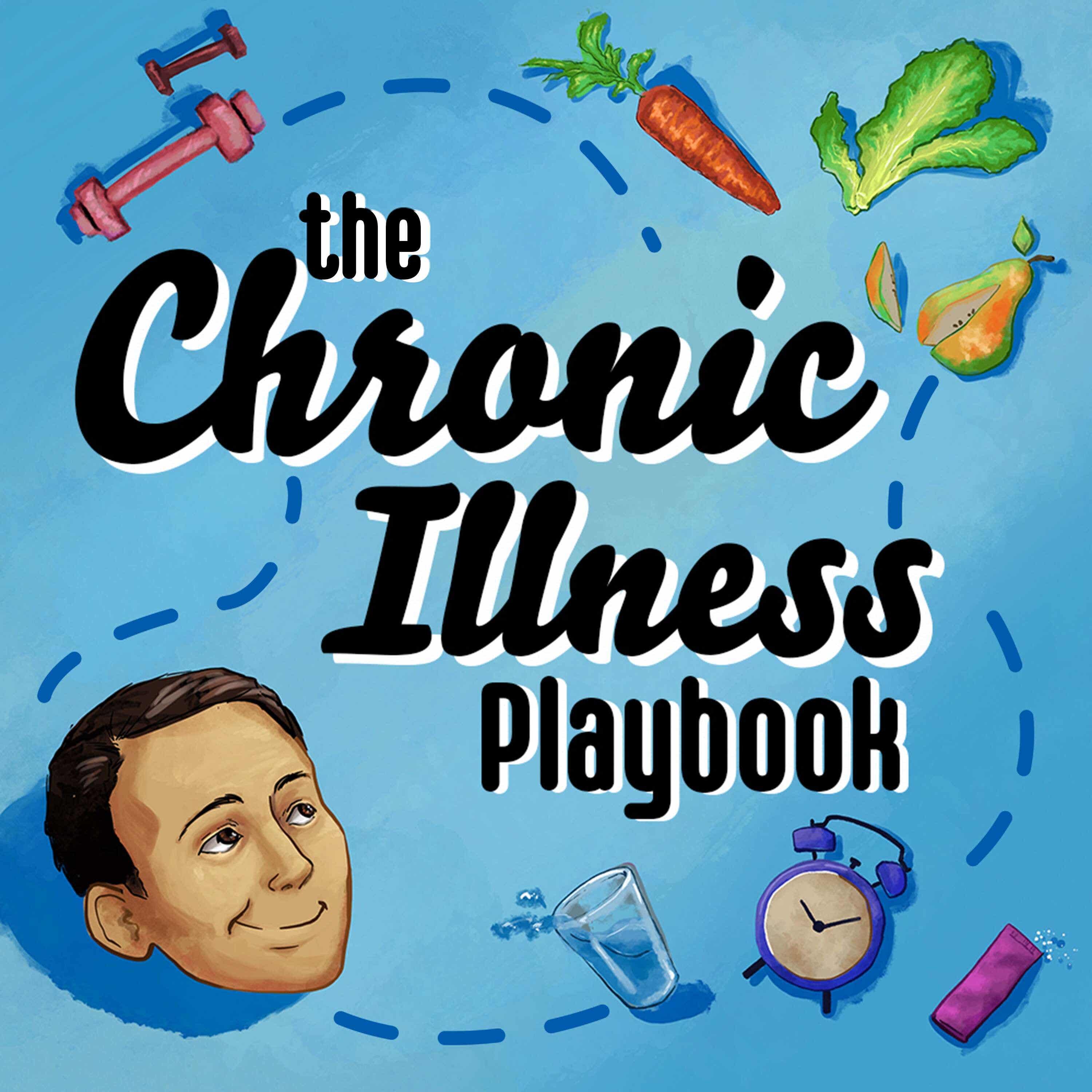
My Spoonie Sisters
Welcome to My Spoonie Sisters! If you're wondering what a "Spoonie" is, it’s a term lovingly embraced by those living with chronic illnesses, based on the Spoon Theory. It’s all about managing our limited energy (or “spoons”) while navigating life’s challenges.
Each week, join us to hear from your "Spoonie Sisters" host, co-hosts, and our inspiring special guests as we share real-life stories, tips, and encouragement. Whether you're here to learn, connect, or feel less alone, you’ll find a supportive space filled with understanding, laughter, and strength. Let’s journey through chronic illness together!
Tune in and join the sisterhood!
All guests featured or mentioned in this podcast will be listed for your convenience. Don't forget to rate and subscribe to My Spoonie Sisters and follow @MySpoonieSisters on Instagram for updates on new episodes and more. If you have a story to share or want to be featured on My Spoonie Sisters, please email MySpoonieSisters@gmail.com. We eagerly look forward to speaking and hearing from all our Spoonies!
Disclaimer: While we are not doctors or healthcare Practitioners, we want to assure you that this podcast is a credible source of information. It's based on our guests' personal experiences and the strategies we've found effective for ourselves. However, everyone's body is unique, and what works for one person may not work for another. If you have any health-related questions, it's always best to consult your Primary Doctor or Rheumatologist.
Remember, our goal at My Spoonie Sisters is to connect people and provide them with the support and tools they need to live better lives.
My Spoonie Sisters
Essential Tips for Your First Rheumatology Consultation
Walking into my first rheumatology appointment back in 2011 was overwhelming, but looking back, the right preparation made all the difference. This episode is your guide to navigating the often confusing world of autoinflammatory arthritis. We discuss the crucial elements of your first rheumatology visit, from bringing a detailed medical history to understanding the importance of a thorough physical examination. Discover how patience is key in the complex journey of finding the right treatment, and learn essential management strategies for long-term conditions like rheumatoid arthritis.
We also equip you with five critical questions to ask your rheumatologist to ensure clarity on your diagnosis, treatment options, and lifestyle changes that can support your health journey. You'll gain insights into monitoring your progress and understanding potential side effects of medications, including disease-modifying drugs and biologics. With this comprehensive overview, you'll be prepared to weigh the benefits and risks of your treatment plan confidently. As your Spoonie Sisters, we're here to support you every step of the way, ensuring you never feel lost or confused on your journey toward better health.
Support:
https://rarepatientvoice.com/Myspooniesisters/
https://www.etsy.com/shop/MySpoonieSisters
https://www.graceandable.com/?bg_ref=980:nzTyG6c9zK (Use code GAJen10)
Website:
https://myspooniesisters.com/
Welcome my Spoonie Sisters to this episode that I want to call Welcome to your First Rheumatology Appointment. Aren't you lucky Walking into my first rheumatology appointment in 2011,? It felt overwhelming, but knowing what to ask and what to expect made all the difference in navigating my autoinflammatory arthritis journey. Later, I was diagnosed with rheumatoid arthritis, so here's what I learned and what you need to know before your first visit. Five things to know.
Speaker 0:Medical history is key. Bring a detailed list of your symptoms, including when they started, how they affect your daily life and any patterns that you've noticed. Previous tests and medications. Have a record of any prior blood tests. This means imaging, x-rays or MRIs, and medications you've tried, including over-the-counter ones too. Next, we have physical exam expectations. The rheumatologist will likely check your joints for swelling, tenderness and movement range. Be prepared for a thorough physical examination. Treatment may take time and movement range. Be prepared for a thorough physical examination. Treatment may take time. So remember that the diagnosis and treatment process can be complex and finding the right medication for you might require a lot of trial and error. So be patient.
Speaker 0:Next you have chronic illness management. Understand that your diagnosis is a long-term condition that requires ongoing management, not just a one-time treatment. I think you know a lot of us go in there and we are hopeful that you are going to prescribe this magical pill for us, and then the next day or a week later, we feel normal and healthy, and it doesn't really work that way. Okay, so next, what I want to tell you is the five questions that I recommend that you ask in your first appointment. So, number one what type of autoinflammatory illness do I have and how severe is it? This will help you understand the scope of your condition and its possible progression. Number two what are my treatment options and how do they work? Now, understanding your options from the disease modifying rheumatic medications to biologics will help you make informed decisions. Number three what lifestyle changes can I make to support my treatment? Ask about diet, exercise and other changes you can implement to improve your quality of life. And number four how will we monitor my progress and how often should I follow up? This ensures you stay on track with treatment and allows for timely adjustments. And lastly, number five are there any potential side effects or long-term risks with these medications? Knowing this helps you weigh the benefits and the risks for your treatment plan. And, of course, last of all, I want to leave you with this.
Speaker 0:Here is a list of the disease modifying drugs for autoimmune disease and their most significant side effects. Okay, we're going to start with methotrexate. Its side effects are fatigue, nausea, liver toxicity, lowered immune function. I mean there's other things too, but those are the main ones. Hydroxychloroquine, or some people call it Plaquenil, these side effects typically you need to worry about vision changes and they will recommend that you see your eye doctor twice a year and keep an eye on headaches and dizziness.
Speaker 0:Number three sulfasalazine. These side effects are things like upset stomach, skin rashes and liver issues. And next we've got Lothlunamide or Arava. The side effects are diarrhea, liver damage and hair thing. And then there is one called zathioprine or imuron, and that's not what I've been on, so I'm not super familiar with it, but from my research the side effects are stomach irritation, loss of appetite and mouth sores.
Speaker 0:And then, of course, there's biologics like Humira and Bororemicade, and these side effects well, they're a risk of infections, injection site reactions and allergic reactions. And then, of course, lastly, what I want to share with you is about JAK inhibitors, and these set of side effects can be things like blood clots, infections, increased cholesterol levels. So be sure that you talk to your doctor about all the risks involved and decide together what is going to work well for you. And, of course, well, we're always here for you. That's why we are your Spoonie Sisters and we are a community, because we want to support you and never have you feel lost and confused through your journey. So if you're new into this little realm of our land, welcome to the club. You don't want to join, but we're here for you. Until next time, don't forget your spoon.














